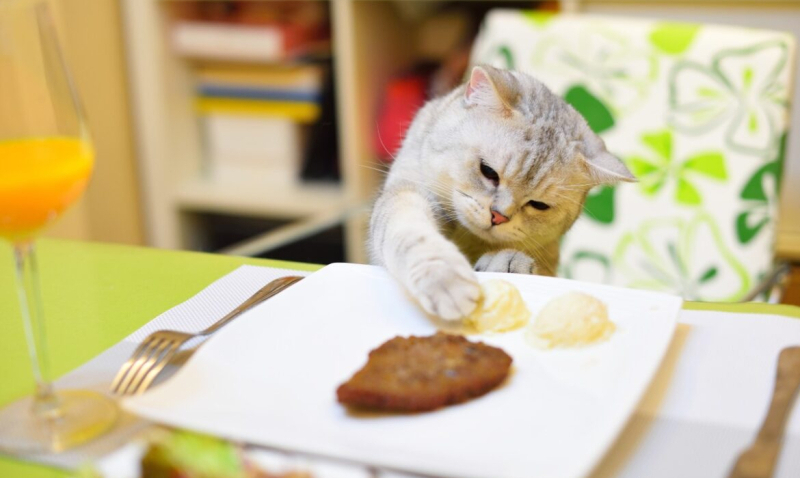
Human food that can kill your cat
1
Wanting to share a snack with your cat is understandable. Pupils become members of the family, they are often humanized. But before you do that, it's important to know which foods are dangerous for cats. Do not feed your pet from the table. Because there is human food that can kill a cat.
Should you feed your cat human food?
It's important to note that despite your cat's pleas, human-friendly treats and snacks simply aren't an integral part of her diet. A study by the Small Animal Clinical Nutrition Service at the University of Missouri in Columbia, Missouri, found out what a cat needs to be healthy. Not much, as it turns out (besides their regular feed).
“Cats have special nutritional needs that must be met in their diet. “The easiest and most convenient way to meet your cat's nutritional needs is to provide her with a complete and balanced commercial diet formulated by a board-certified veterinary nutritionist or someone with a doctorate in animal nutrition,” says the Clinical Nutrition Service.
This means that any vitamins and minerals found in treats, even fruits and vegetables that we humans consider healthy snacks, are in excess of the cat's needs. And when it comes to nutrients, more isn't always better. In some cases, it can even be harmful.
What types of human food are safe for cats?
But if you do want to feed your cat, there are a few human foods that are usually considered safe for cats. However, as long as they do not make up more than 10% of the cat's daily diet.
“For example, if a cat consumes 250 calories per day, no more than 25 of those calories should come from any what unbalanced sources of food,” the study says.
However, experts warn that cats must be considered taking into account their individual needs. Because some of them can consume a certain food without any problems, others with consequences. They may experience vomiting, diarrhea, or other symptoms. With that in mind, it's always a good idea to talk to your vet before adding any new human foods to your pet's diet. Even the ones that are considered safe.
Human Food That Could Kill Your Cat
“There are human foods that are dangerous and should never be given to cats,” the study says.
The Clinical Nutrition Service has developed a long list of human foods that should not be fed to cats. But, probably, this is not an exhaustive list. Because many foods haven't undergone peer-reviewed studies to determine how toxic they are.
Here's the human food that could kill your cat.
Alcohol
Beverages and foods containing alcohol can cause serious problems in pets, including vomiting, diarrhea, difficulty breathing, coma, and death.
Yeast bread
Yeast dough can rise and cause gas build-up in your cat's digestive system. This can cause the abdomen to swell and even twist, which can lead to death. Additionally, yeast produces alcohol as a problematic byproduct (see above). However, baked bread is considered safe for healthy cats.
Chocolate
Chocolate contains substances called methylxanthines (including theobromine and caffeine), which are toxic to pets and can cause vomiting, diarrhea, tremors, convulsions, and death. The concentration of methylxanthines varies depending on the type of chocolate. Cocoa powder is the most dangerous and white chocolate the least dangerous.
Coffee
Like chocolate, coffee contains methylxanthine caffeine and thus can have the same effects as listed above.
Citrus
Citrus fruits such as lemons, limes, oranges, clementines, and grapefruits contain citric acid and essential oils that can cause problems in cats. Stems, leaves, skins, fruits and seeds should be avoided. While small amounts are likely to cause only an upset stomach, large amounts can cause diarrhea, vomiting, and central nervous system depression.
Coconut pulp and coconut water
Fresh coconut milk and pulp can cause digestive problems in pets, although small amounts are unlikely to cause serious harm. Coconut water is too high in potassium to be safe for pets, although coconut oil can help with some skin problems in cats. Talk to your vet before using this as a supplement or adding it to your cat's diet.
Dairy
Feeding your cat dairy products can cause digestive problems, as many cats are lactose intolerant and cannot properly digest dairy products (milk, cheese, yogurt). The safest approach is to avoid them entirely, but you can ask your vet if a lactose-free alternative is acceptable.
Grapes and Raisins
Although the exact reason why they are poisonous to pets, remains unknown, there is evidence that feeding grapes and raisins to cats (and dogs!) can lead to kidney failure.
Nuts
Macadamia nuts are toxic to pets and, as with grapes, the exact mechanism of toxicity is unknown. Other nuts, including almonds, pecans, and walnuts, are high in oils and fats that can cause indigestion and possibly even pancreatitis in cats.
Raw eggs
Raw eggs can be contaminated with salmonella bacteria. Signs of infection include vomiting, diarrhea, and diarrhea. Raw eggs also contain avidin, an enzyme that prevents cats from absorbing biotin, a vitamin important for skin and coat health.
Raw or undercooked meat
Like raw eggs, raw or undercooked meat can be contaminated with salmonella and E. coli bacteria. The Clinical Nutrition Service reports that it often sees gastrointestinal symptoms (usually diarrhea) in pets that consume raw meat-based foods.
Raw fish
As raw m meat and eggs, raw fish may contain bacteria that cause food poisoning.
Salt
In large amounts, salt and salty foods can cause vomiting, diarrhea, tremors, convulsions, and death in pets.
Some vegetables and greens
Although cats can eat some vegetables, onions, garlic, leeks, green onions, shallots and green onions are particularly harmful to cats, causing gastrointestinal problems and even damaging red blood cells. Foods that contain these vegetables and herbs, such as garlic bread, should also be avoided.
Xylitol
Xylitol is a common sweetener in packaged goods such as chewing gum and lollipops that can cause vomiting, lethargy, and liver failure in pets.
What to do if your cat has eaten something toxic
If you know or suspect that your cat has eaten a product on the toxic list, call your veterinarian as soon as possible. You don't have to wait until your cat shows signs of illness to seek help. The sooner you address any problems or potential problems, the better.
Fortunately, the Clinical Nutrition Service says it's rare to see cats with food poisoning. This is usually more of a problem with dogs who are more enterprising and indiscriminate about what they eat. And just like your cat, who is likely to be wary of trying new foods, you also benefit from being discerning about what you feed her. Before making any changes to your cat's diet, talk to your vet about what ingredients are safe and what amounts your cat can try.

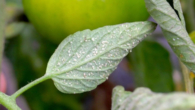
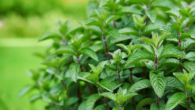
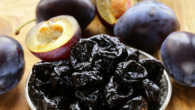

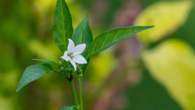
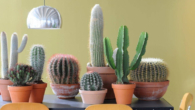
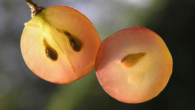

Leave a Reply